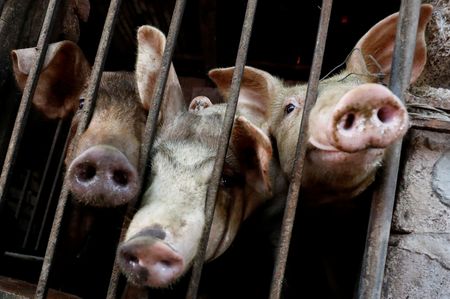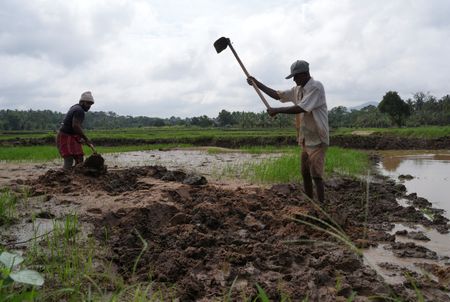HANOI (Reuters) – African swine fever outbreaks are spreading in Vietnam and could affect its food supplies and put upward pressure on inflation, according to a government document.
ASF has for years disrupted the $250 billion global pork market.
In the worst outbreak in 2018 and 2019, about half the domestic pig population died in China, the world’s biggest producer, causing losses estimated at more than $100 billion.
“The risk of wider spread of the disease is very high, and it can affect food supplies, consumer prices and the environment,” said the Vietnamese government document, which was dated July 14 and was reviewed by Reuters.
Vietnam has culled 42,400 infected pigs so far this year, the document said, up by nearly five times that of the same period last year.
The Southeast Asian country has this year detected 660 ASF outbreaks nationwide, compared to 208 outbreaks during the same period last year.
The government in the document ordered provinces to deploy measures to curb the spread, including prioritising funds for vaccinating pigs against the disease.
Vietnam in July last year approved the domestic commercial use of two home-grown vaccines, the world’s first commercial vaccines for the deadly disease.
In December, the World Organisation for Animal Health (WOAH) was warning that more testing of ASF vaccines was needed.
An increase in pork prices due to African swine fever in some localities was among the causes for Vietnam’s higher consumer price index in June, according to the General Statistics Office.
Foodstuff prices rose 3.23% in the month against the same period of 2023, official data showed.
(Reporting by Khanh Vu and Phuong Nguyen; Editing by Martin Petty)







